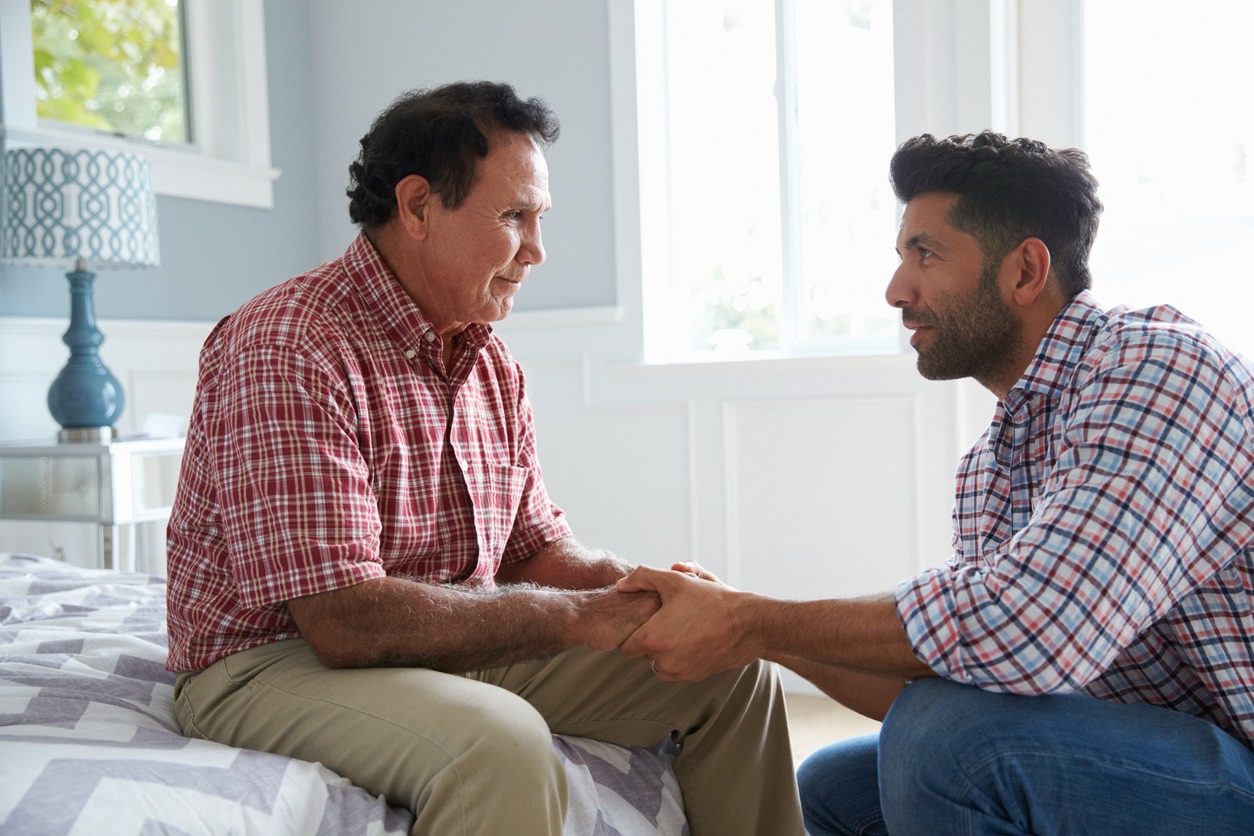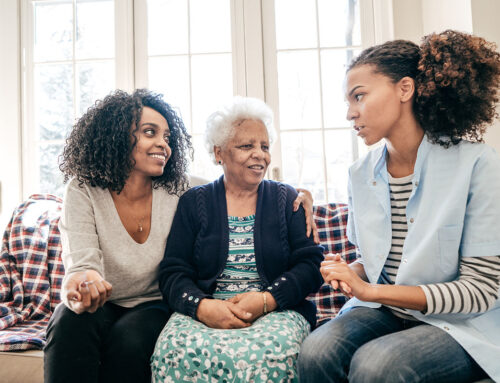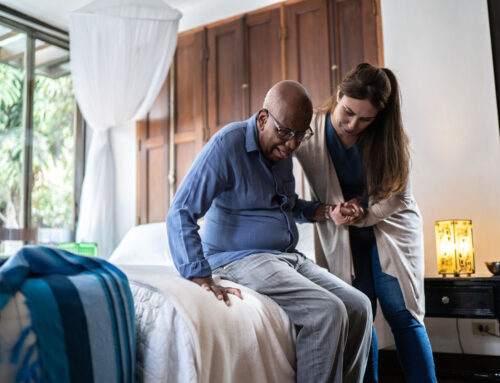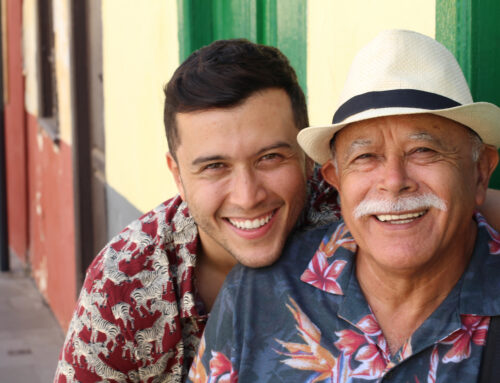September 21 is World Alzheimer’s Day, a day dedicated to raising awareness about Alzheimer’s and dementia. Every 65 seconds, someone develops Alzheimer’s Disease, it’s the seventh-leading cause of death in the United States. Many experts predict that by 2050 as many as 16 million Americans will be living with Alzheimer’s. We must all gain an understanding of dementia and Alzheimer’s as our families age.
As a provider that regularly helps families cope with these issues, we would like to help readers gain a deeper understanding of dementia and Alzheimer’s. Read on to also find advice on how to cope with an Alzheimer’s diagnosis and how Roze Room can help families coping with Alzheimer’s.
What is Alzheimer’s versus dementia ?
Dementia and Alzheimer’s disease are related but not the same.
Dementia is an umbrella term for a range of symptoms affecting memory, thinking, and social abilities, significantly interfering with activities of daily life. It can result from various conditions, including Alzheimer’s, vascular issues, and others.
Alzheimer’s disease is the most common cause of dementia. It’s a specific neurodegenerative disease characterized by progressive memory loss and cognitive decline, typically starting with short-term memory and eventually affecting other cognitive functions.
All Alzheimer’s patients have dementia, but not all dementia patients have Alzheimer’s.
What are the signs of Alzheimer’s or dementia?
Dementia and Alzheimer’s disease are characterized by a range of symptoms, often progressing gradually. While both conditions share some symptoms, Alzheimer’s disease is a specific type of dementia. Here are common signs of both:
Early Signs of Alzheimer’s and Dementia
1 Memory Loss: Especially forgetting recently learned information. This is often one of the earliest signs.
2 Difficulty in Planning or Solving Problems: Trouble developing and following a plan or working with numbers, such as keeping track of monthly bills.
3 Difficulty Completing Familiar Tasks: Problems with routine tasks at home, work, or leisure.
4 Confusion with Time or Places: Losing track of dates, seasons, and the passage of time. They may forget where they are or how they got there.
5 Trouble Understanding Visual and Spatial Relationships: Difficulty reading, judging distance, and determining color or contrast.
6 Problems with Words in Speaking or Writing: Trouble following or joining a conversation, and struggle with vocabulary, having problems finding the right word or calling things by the wrong name.
7 Misplacing Things and Losing the Ability to Retrace Steps: Putting things in unusual places and being unable to retrace steps to find them.
8 Decreased or Poor Judgment: Experiencing changes in judgment or decision-making, such as poor judgment with money.
9 Withdrawal from Work or Social Activities: Removing themselves from hobbies, social activities, work projects, or sports.
10 Changes in Mood and Personality: Becoming confused, suspicious, depressed, fearful, or anxious. They may become easily upset at home, at work, with friends, or in places where they are out of their comfort zone.
Middle to Late Stages
1 Increased Memory Loss and Confusion: More significant forgetfulness and confusion, including forgetting significant events or people.
2 Difficulties in Communicating: Greater problems with language and communication.
3 Physical Changes: Trouble with coordination and motor functions.
4 Behavioral Changes: Agitation, restlessness, or aggression. Wandering, especially in the later stages.
5 Severe Cognitive Decline: Profound difficulty with thinking and reasoning, impacting day-to-day function and safety.
What if I suspect a loved one is showing signs of dementia or Alzheimer’s?
If you suspect a loved one is showing signs of dementia or Alzheimer’s, it’s important to approach the situation with care and sensitivity. Here are steps you can take:
1 Observe and Document Symptoms: Keep a detailed record of the changes you notice, including when they started, how often they occur, and how they affect daily life. This information will be useful for medical professionals.
2 Communicate Concerns: Have a gentle and compassionate conversation with your loved one. Express your concerns and share specific examples of the changes you’ve observed.
3 Arrange a Medical Evaluation: Suggest that they see a doctor for a thorough evaluation. Make an appointment for them and accompany them.
4 Seek Professional Help: Your doctor may refer them to a neurologist or geriatrician for further assessment. Cognitive tests, neurological exams, and imaging studies may be conducted to diagnose the condition.
5 Plan for the Future: If a diagnosis is made, start planning for future care needs. This may include legal and financial planning, discussing care preferences, and exploring care options like home care, hospice and skilled nursing.
6 Seek Support: Join support groups for caregivers of people with dementia or Alzheimer’s. These groups can provide valuable information, resources, and emotional support.
7 Educate and Involve Family Members: Keep other family members informed about the situation. Encourage them to be understanding and patient.
8 Take Care of Yourself: Caring for someone with dementia or Alzheimer’s can be emotionally and physically demanding. Make sure to take care of your own health and well-being.
9 Use Available Resources: Reach out to organizations such as the Alzheimer’s Association, which offers resources, support, and information for those affected by dementia and Alzheimer’s.
Approaching the situation with empathy, patience, and preparedness can make a significant difference in managing the challenges ahead. Trying to understand dementia and Alzheimer’s is a great first step.
Coping with an Alzheimer’s diagnosis can feel overwhelming and life shattering. This devastating disease carries with it tremendous fear and uncertainty. Learn more about coping with an Alzheimer’s diagnosis here: https://rozeroom.org/coping-with-an-alzheimers-diagnosis/
Learn more here about how Roze Room can help families coping with Alzheimer’s: https://rozeroom.org/8-ways-hospice-helps-families-living-with-alzheimers/





